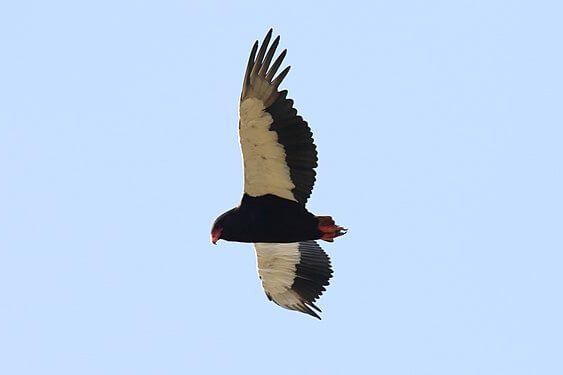
A recent study reveals a dire situation facing Africa’s birds of prey, with a significant decline in populations posing potential knock-on risks for people.
Over the past four decades, tropical raptor species such as the martial eagle, bateleur, and dark chanting goshawk have disappeared from large parts of the African continent due to the conversion of wild areas into farmland.
If current trends persist, several African raptors are at risk of local extinction in numerous countries by the end of the century.
The study, published in Nature Ecology and Evolution, utilised road surveys to assess 42 raptor species, finding that nearly 90% had suffered declines, with over two-thirds showing signs of global threat.
Dr. Phil Shaw from the University of St Andrews, the study’s author, warns of unintended consequences for humans, drawing parallels with the rise in rabies cases following the decline of Indian vultures.
African birds of prey, known for their ability to hunt larger prey like jackals and antelopes, are increasingly reliant on protected areas such as national parks and reserves. While populations in these areas also experienced declines, the rate was notably slower.
The study underscores the importance of meeting the UN target to protect 30% of the Earth’s surface by the decade’s end for preserving nature.
“We find that [while] protected areas do provide a good measure of protection, it’s still the case that raptors are declining within protected areas – quite steeply in some cases,” Shaw said. “In fact, we found 40% of those 42 species were declining inside of protected areas at rates that would classify them as being endangered. In effect, they have nowhere else to run.”
Inspired by a 2015 study highlighting the critical endangerment of African vultures due to poisoning and persecution, Shaw and his team expanded their research.
“We’ve looked at 42 species of raptors that also include the vulture species. We find that surprisingly, many of the larger raptors have been declining at an equally fast rate as the vultures,” he said.
The most significant declines were observed in West Africa, attributed to agricultural expansion and inadequate resources for protected areas.
Shaw emphasises the potential unforeseen consequences of raptor disappearance in affected regions.
“In the case of the vultures, it’s fairly clear cut that they provide an ecosystem service by removing carcasses. We’ve seen what happened in India when they had a similar population crash for different reasons. It led to an increase in the number of feral dogs, particularly in built-up areas … That led to a huge increase among the human population of rabies, passed on by bites from the dogs,” he said.
——————————————————————————
At Natural World Fund, we are passionate about stopping the decline in our wildlife.
The decline in our wildlife is shocking and frightening. Without much more support, many of the animals we know and love will continue in their decline towards extinction.
When you help to restore a patch of degraded land through rewilding to forests, meadows, or wetlands, you have a massive impact on the biodiversity at a local level. You give animals a home and food that they otherwise would not have had, and it has a positive snowball effect on the food chain.
We are convinced that this is much better for the UK than growing lots of fast-growing coniferous trees, solely to remove carbon, that don’t actually help our animals to thrive.
This is why we stand for restoring nature in the UK through responsible rewilding. For us, it is the right thing to do. Let’s do what’s right for nature!
Donate today at https://naturalworldfund.com/ and join in the solution!

